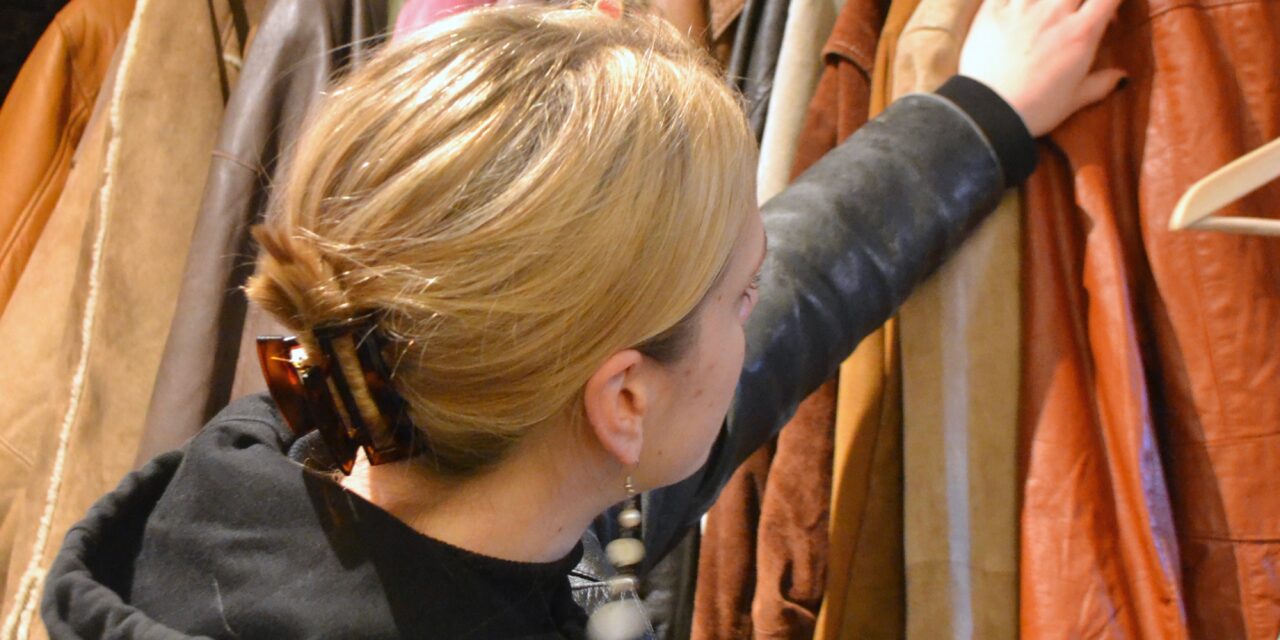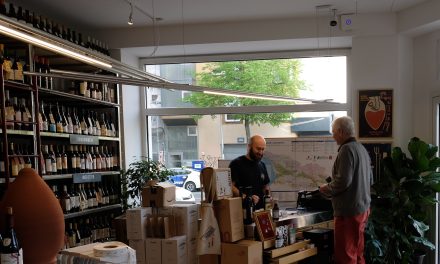Walking down Strøget in Copenhagen you can see that almost every fashion store uses the words sustainable or sustainability. The term has become unavoidable in the fashion industry due to its popularity. This has led to people and the media cancelling companies for greenwashing. But is greenwashing really that simple?
Sustainability isn’t a new concept. It has been accepted since the 18th century, first coined in the forestry industry and motivated by the idea that the forest shouldn’t be harvested at a faster pace than it can regrow. Today it is seen in the fashion industry. Fashion is producing faster than nature can reproduce. There are no true measurements signifying whether something is sustainable or not. So, claiming that a product is sustainable is fairly easy. However, the word has often become associated with big terms like responsibility, preservation and health. Going into an H&M store today, buying a garment labelled as conscious or sustainable brings ethical value and is immediately more attractive for any customer. Many organisations have realised the increasing importance of sustainability and some even abuse the term. This is what we call greenwashing.
On the one hand greenwashing can be looked at from a black and white perspective. Hanna Wittrock, Lecturer at the University in Borås has done a lot of research on the topic and she says that “greenwashing is like a plaster companies use to sound more sustainable than they might be”. Despite many companies trying to simplify the term, it’s something that is difficult to identify. There is a lot more behind the curtain than what we perceive. She links it to the wizard of Oz:
“It’s very difficult when it comes to fashion I think. Greenwashing doesn’t really work that way. It’s not like in the wizard of Oz, there’s not a curtain you can just pull down and show the dirty reality and say look here is greenwashing”
Wittrock continues to explain that she truthfully believes “that there are many working in the industry who actually believe that they are doing something good and they actually want to make a difference. But it’s difficult to act also because they are restricted”
Wittrock suggests another perspective that we should consider. A spiritual perspective. Consumers are very quick to judge when it comes to companies being sustainable or not and cancel them for greenwashing without looking at themselves. Because, at the end of the day, it’s us consumers who need to slow down our consumption. Wittrock explains it as “a hole that we are filling with things”. We are all shopaholics. Wittrock says that “we’re always looking to be in a constant flow of affirmation” and that we “can’t handle when things are boring. We’re always looking to be in ecstasy”. Consumption in itself is what is destroying us humans and the environment.
Wittrock compares the consumer to the brands and believes that “the ecstasy, flow or affirmation, I believe, maintains the illusion that we’re being sustainable. But, we’re not acting sustainable and I believe it might be a similar feeling to what the companies feel.”. Because the people working at the companies are also consumers, the behaviour has become a part of us. Wittrock says that she doesn’t believe “it’s a cynical manipulation or that they are consciously tricking us”.
Maybe it’s not only a term that companies use as a marketing tool but also a representation of our ethical conscience. In reality, there is not really a difference between consumers and brands, because the ones in control are consumers as well. We tell ourselves that we are being sustainable, but in reality, we are greenwashing ourselves internally.
Besides the spiritual perspective, there’s no denying that it is difficult for companies to be completely sustainable in all steps and it’s difficult to know what’s right or wrong. Looking behind the curtain at any brand, mass-producing or not, there is a supply chain. The mass-producing companies, however, have a more extensive supply chain and more steps to follow than smaller brands have. Being sustainable in all of these steps requires the whole organisation to change its structure.
Anna Bernstein is the CSR manager at Ayaiu Copenhagen, a brand aiming at making garments within the fashion industry through only sustainable methods. Bernstein feels with other brands and says that as “someone who works in sustainability I can also see that there is very rarely a right and wrong answer.” She continues to explain that she has “more sympathy because it’s a confusing thing even when it’s your job to know what you’re doing.” Because turning a company sustainable is not just switching cotton for organic cotton. Berstein continues:
“Most things are a trade-off between two different things. Some may be more polluting and the other might be using more water and another thing might be using more greenhouse gases.”
At the same time sustainability is a complicated topic, so it’s difficult to speak about it in a simple way. In regard to the different perspectives within sustainability, there’s an ethical perspective and social perspective as well which should be considered. In addition, looking at who the brands are collaborating with also matters. Wittrock tells me a story about a company that was looking for a collaboration with her students from the university.
“They wanted us to ask a couple of questions for our students since they are working with sustainability as their profile. The students bombarded back with responses saying that ‘you’re telling us that you are working with sustainability, but then you have a fast fashion influencer for your profile? How reliable is that?’”
The influencer is well-known for her hauls or collaborations with many different fast-fashion brands such as Na-Kd and ZARA. Having an influencer supporting the fast fashion industry decreases the reliability of an organisation that wants to be perceived as sustainable.
Wittrock moves on by explaining that “no brand wants to be accused of greenwashing” but that the brands seem to be “a bit in the unknown with that there also needs to be coherence. I mean, you can’t use an influencer posting on every new garment she buys.”
We need something more than organic cotton in our t-shirts. What we should look into is consumer behaviour and why consumerism is such a big part of us. The companies need to restructure and educate themselves in why consumers perceive them as sustainable or not. In the audio below, Martin Behm, CEO at Make Thrive and advisor at Forever Sustainable, says that companies should understand their purpose. We need something more than just the hunt for economical gain.




